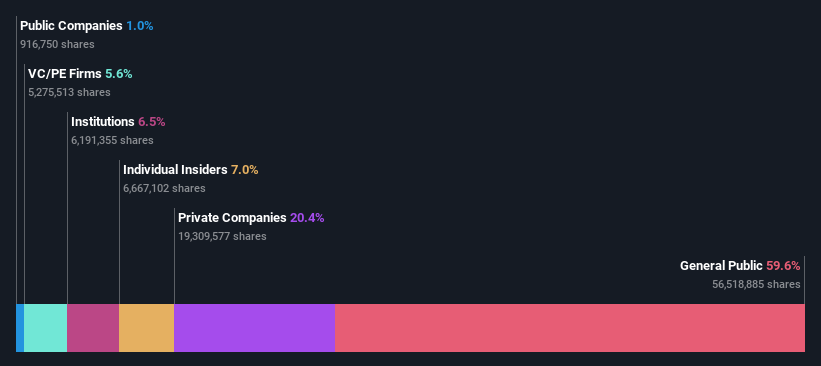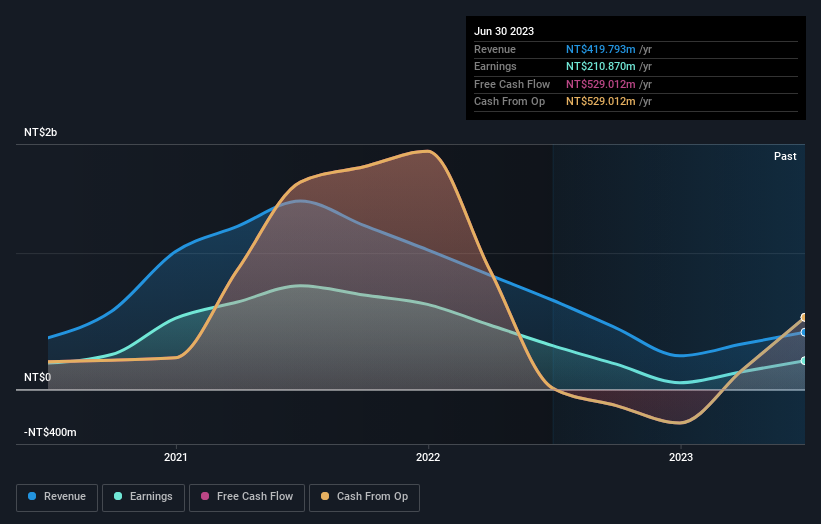Hotung Investment Holdings Limited (SGX:BLS) stock most popular amongst retail investors who own 60%, while private companies hold 20%
Key Insights
The considerable ownership by retail investors in Hotung Investment Holdings indicates that they collectively have a greater say in management and business strategy
A total of 15 investors have a majority stake in the company with 40% ownership
Past performance of a company along with ownership data serve to give a strong idea about prospects for a business
Every investor in Hotung Investment Holdings Limited (SGX:BLS) should be aware of the most powerful shareholder groups. And the group that holds the biggest piece of the pie are retail investors with 60% ownership. That is, the group stands to benefit the most if the stock rises (or lose the most if there is a downturn).
Meanwhile, private companies make up 20% of the company’s shareholders.
In the chart below, we zoom in on the different ownership groups of Hotung Investment Holdings.
View our latest analysis for Hotung Investment Holdings
What Does The Institutional Ownership Tell Us About Hotung Investment Holdings?
Institutional investors commonly compare their own returns to the returns of a commonly followed index. So they generally do consider buying larger companies that are included in the relevant benchmark index.
As you can see, institutional investors have a fair amount of stake in Hotung Investment Holdings. This can indicate that the company has a certain degree of credibility in the investment community. However, it is best to be wary of relying on the supposed validation that comes with institutional investors. They too, get it wrong sometimes. If multiple institutions change their view on a stock at the same time, you could see the share price drop fast. It's therefore worth looking at Hotung Investment Holdings' earnings history below. Of course, the future is what really matters.
Hotung Investment Holdings is not owned by hedge funds. Tai Lung Capital, Inc. is currently the largest shareholder, with 18% of shares outstanding. In comparison, the second and third largest shareholders hold about 6.4% and 5.6% of the stock. Additionally, the company's CEO Tsui-Hui Huang directly holds 1.4% of the total shares outstanding.
On studying our ownership data, we found that 15 of the top shareholders collectively own less than 50% of the share register, implying that no single individual has a majority interest.
Researching institutional ownership is a good way to gauge and filter a stock's expected performance. The same can be achieved by studying analyst sentiments. Our information suggests that there isn't any analyst coverage of the stock, so it is probably little known.
Insider Ownership Of Hotung Investment Holdings
The definition of an insider can differ slightly between different countries, but members of the board of directors always count. The company management answer to the board and the latter should represent the interests of shareholders. Notably, sometimes top-level managers are on the board themselves.
I generally consider insider ownership to be a good thing. However, on some occasions it makes it more difficult for other shareholders to hold the board accountable for decisions.
We can report that insiders do own shares in Hotung Investment Holdings Limited. It has a market capitalization of just S$142m, and insiders have S$10m worth of shares, in their own names. Some would say this shows alignment of interests between shareholders and the board, though we generally prefer to see bigger insider holdings. But it might be worth checking if those insiders have been selling.
General Public Ownership
The general public, who are usually individual investors, hold a substantial 60% stake in Hotung Investment Holdings, suggesting it is a fairly popular stock. With this amount of ownership, retail investors can collectively play a role in decisions that affect shareholder returns, such as dividend policies and the appointment of directors. They can also exercise the power to vote on acquisitions or mergers that may not improve profitability.
Private Equity Ownership
With an ownership of 5.6%, private equity firms are in a position to play a role in shaping corporate strategy with a focus on value creation. Sometimes we see private equity stick around for the long term, but generally speaking they have a shorter investment horizon and -- as the name suggests -- don't invest in public companies much. After some time they may look to sell and redeploy capital elsewhere.
Private Company Ownership
Our data indicates that Private Companies hold 20%, of the company's shares. It might be worth looking deeper into this. If related parties, such as insiders, have an interest in one of these private companies, that should be disclosed in the annual report. Private companies may also have a strategic interest in the company.
Next Steps:
I find it very interesting to look at who exactly owns a company. But to truly gain insight, we need to consider other information, too. Be aware that Hotung Investment Holdings is showing 2 warning signs in our investment analysis , and 1 of those doesn't sit too well with us...
Of course this may not be the best stock to buy. So take a peek at this free free list of interesting companies.
NB: Figures in this article are calculated using data from the last twelve months, which refer to the 12-month period ending on the last date of the month the financial statement is dated. This may not be consistent with full year annual report figures.
Have feedback on this article? Concerned about the content? Get in touch with us directly. Alternatively, email editorial-team (at) simplywallst.com.
This article by Simply Wall St is general in nature. We provide commentary based on historical data and analyst forecasts only using an unbiased methodology and our articles are not intended to be financial advice. It does not constitute a recommendation to buy or sell any stock, and does not take account of your objectives, or your financial situation. We aim to bring you long-term focused analysis driven by fundamental data. Note that our analysis may not factor in the latest price-sensitive company announcements or qualitative material. Simply Wall St has no position in any stocks mentioned.


